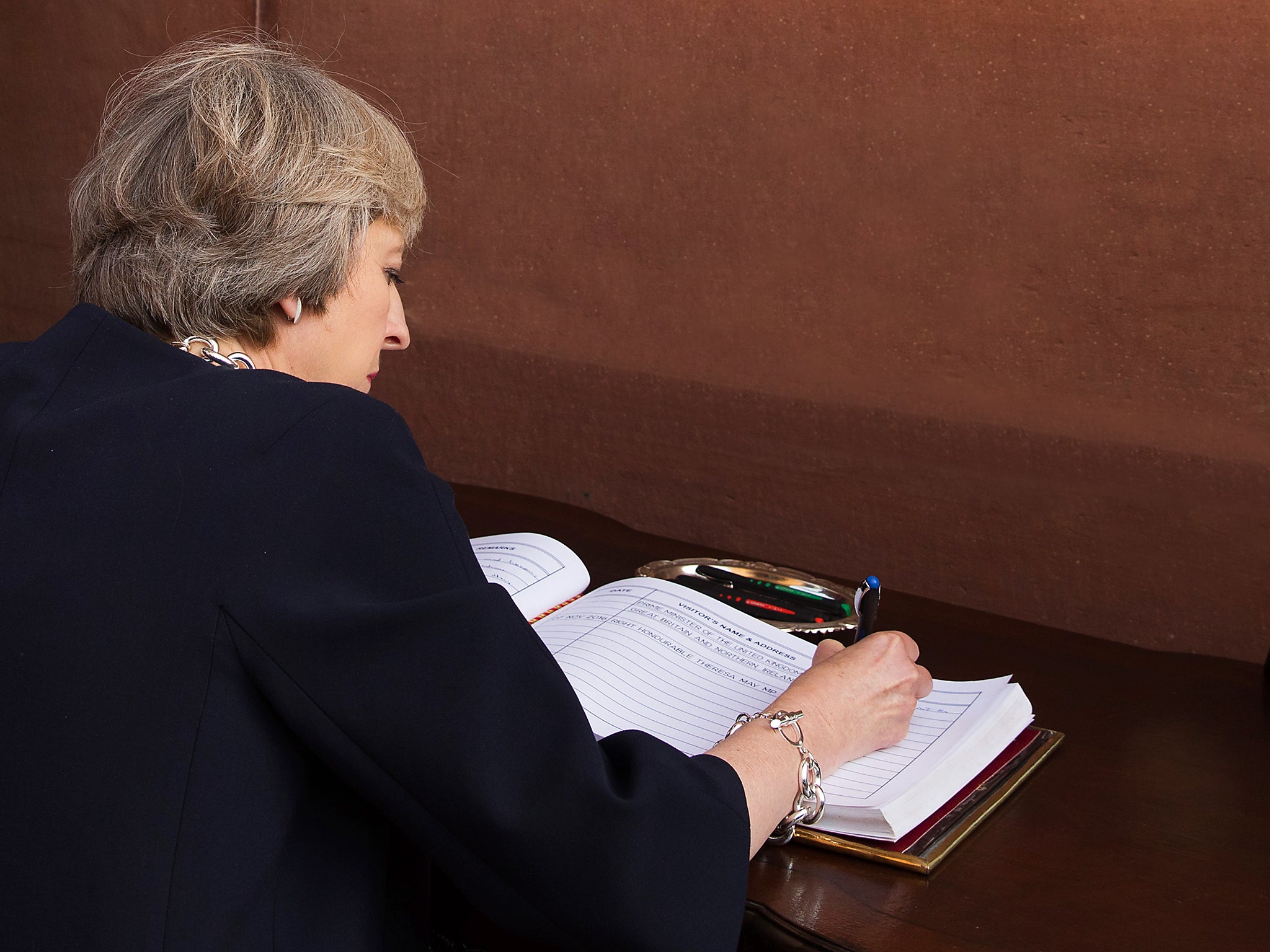Theresa May insists she has 'mandate' to impose hardest possible Brexit
The Prime Minister says she has the authority to pull out of the EU with no trade deal – which would force British exporters onto World Trade Organisation tariffs

Theresa May has insisted she has a “mandate” to impose the hardest possible Brexit, potentially imposing huge tariffs on businesses trying to sell in the EU.
Ahead of further debate on the Article 50 Bill, the Prime Minister said she had the authority to pull out with no fresh trade deal, if necessary – forcing Britain onto World Trade Organisation (WTO) tariffs.
Before the referendum, the Treasury warned that falling back on those tariffs would trigger an economic slump, forecasting a 7.5 per cent hit to GDP by 2030.
For that reason, some alarmed Conservative MPs will vote with Labour tomorrow to try to force a “meaningful” vote on the outcome of the Brexit negotiations, in 2019.
They want it to be early enough for the Prime Minister to be required to go back and seek better terms from the EU if there is no agreement, or if MPs reject the terms she has reached.
It has been suggested that, if defeated in Parliament on her exit terms, Ms May would call a snap general election to win a mandate directly from voters.
But, asked if she had a “mandate for WTO tariffs”, the Prime Minister’s official spokeswoman said: “There was a decision put to the British people, ‘do you want to stay in the EU or do you want to leave’.
“And it came back very clearly that people wanted to leave the EU – so, yes, the PM has a mandate to deliver on the decision of the British people.”
However, the spokeswoman suggested WTO tariffs would not be necessary, adding: “We are approaching this with a view that we are going to make as success of this and that we can achieve the right deal for Britain in the negotiations.”
She also refused to give ground on Opposition demands for the final vote to be before any agreement is debated – and voted upon – by the European Parliament.
It was expected to be “at the outcome of the negotiations, as the process is being taken forward both here and in the EU,” she said.
Asked in what way “no deal” could be better than a “bad deal”, Ms May’s spokeswoman pointed to the central aims of regaining control of immigration and law-making, while getting the “best possible comprehensive trading deal”.
The spokeswoman also hinted that the Prime Minister was unlikely to accept any of the amendments that will be tabled to the Article 50 Bill over the next two days.
She said: “We've been very clear, we think this should be a straightforward bill about giving the Government the power to deliver on the decision of the British people.”
MPs will debate the Article 50 Bill at its detailed committee stage for the next two days, before a vote on its third and final reading at 7pm on Wednesday.
Flashpoints will come tonight over whether the Government must report back regularly to Parliament on the status of the negotiations and over Brexit’s impact on the devolved nations.
Tomorrow, Labour and the Tory rebels will attempt to force an early “meaningful” vote on the outcome and the Liberal Democrats will push for a further referendum on the exit terms before Brexit is completed.
On Wednesday, Ms May will come under pressure to guarantee the rights of 3m EU citizens in Britain - before the negotiations get underway.
Join our commenting forum
Join thought-provoking conversations, follow other Independent readers and see their replies
Comments
Bookmark popover
Removed from bookmarks